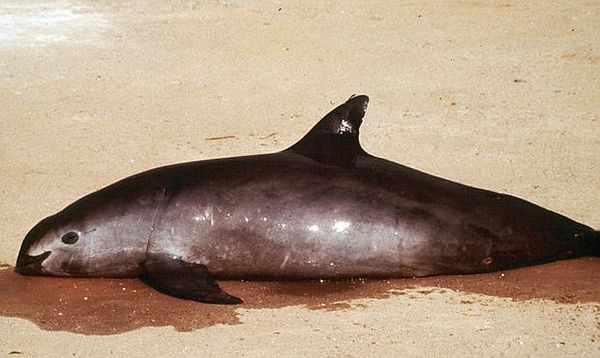Mexico City, Mexico - Mexico is planning to use drones to patrol the upper Sea of Cortez to combat illegal fishing and save the critically endangered vaquita marina, the world's smallest porpoise.
Alejandro del Mazo, Deputy Attorney General of Mexico's environmental protection agency, Profepa, said Monday his agency has conducted tests of unmanned aircraft flights in cooperation with the Mexican Navy.
Del Mazo says he hopes to have three drones patrolling the vaquita's habitat in coming months. Also known as the Gulf of California, it is the only place vaquitas are found.
"We are considering the use of advanced technology, because drones would allow us to have permanent aerial patrols in the area and be able to react much more efficiently and quickly," Del Mazo said.
Fewer than 100 of the shy, elusive porpoises remain. The vaquita is threatened by illegal gillnet fishing for totoaba, a large fish whose swim bladder is prized by chefs in China.
 |
Del Mazo said Mexican authorities had arrested a total of seventeen people in 2014 for trafficking in Totoaba bladders, which is illegal.
Luis Fueyo, the head of Mexico's national protected areas, noted that Mexico is increasing cooperation with US authorities, given that dried Totoaba bladders are often clandestinely shipped through California and then to China.
In December, Mexican authorities proposed a $37 million plan to ban gillnet fishing in about half of the upper Gulf. The plan is up for mandatory public consultation, and could be implemented in March.
There is already a protected reserve area around the mouth of the Colorado River delta, but the new proposal would greatly increase the no net-fishing area southward.
The new area would essentially include almost all of the vaquitas' known range. The ban would initially be in place for two years.
The plan presented by the Agriculture and Fisheries Department would pay some of the fishermen to work patrolling the area to detect violations of the net ban. Some non-threatening net fishing techniques would be allowed for some months of the year.
Fueyo noted that a longer-range plan is needed.
"The vaquita can't recover in two years, because they only reproduce every two years, and only 25 of those left are of reproducing age," said Fueyo. "In order to recover a population of 5,000 individuals, there will have to be a long range plan of 20 or 30 years."
Mexico got some good news this year about another marine mammal, the grey whale that calves in lagoons and bays on the Pacific coast of Baja California.
Authorities said they had detected 141 whale calves in the Ojo de Liebre lagoon, 8 percent higher than last year, and 34 calves in San Ignacio lagoon, five times as many as last year.
Original Story


